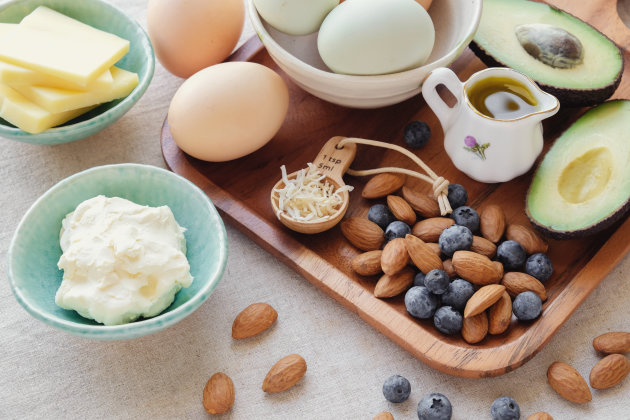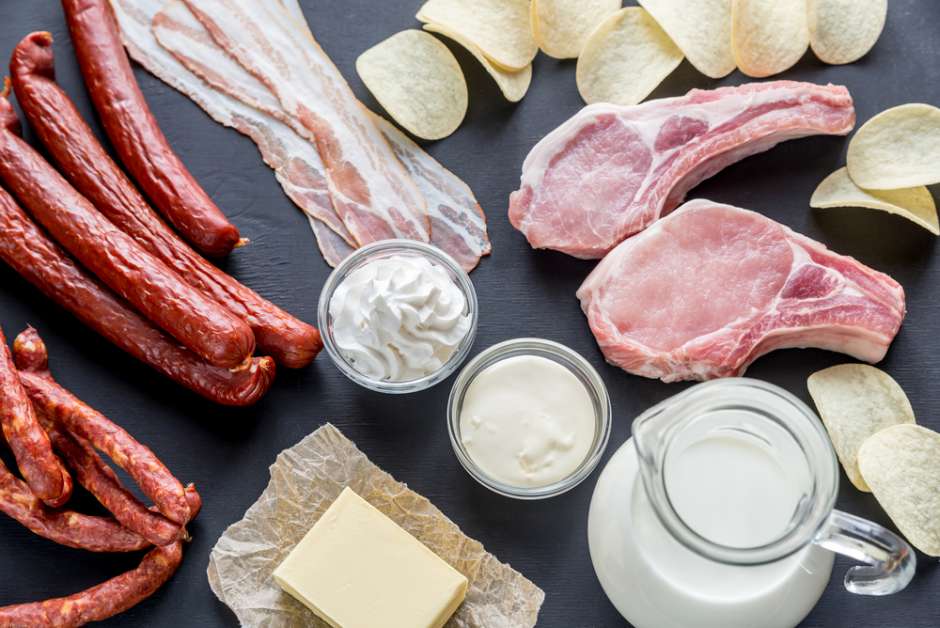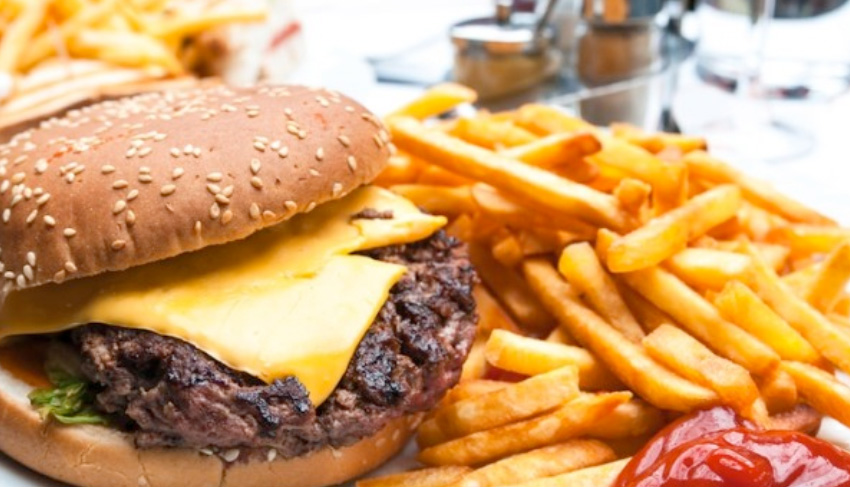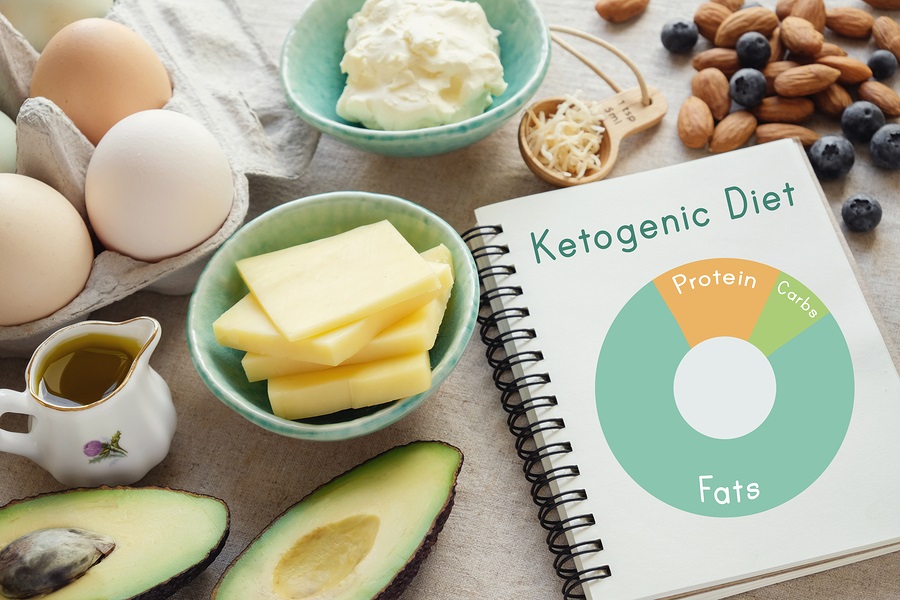Healthy Fats – A Few Myths and Healthy Fats
Healthy Fats should be an important part of our dietary chart. We, in fact, cannot live without them.
But, if you are planning on losing weight, you must have been told a million times to skip your fat intake. And it might seem like pretty correct information to you too.
Well, you cannot be more WRONG!
Weight loss can get much easier if you have your facts cleared. Here are a few myths you have been falling into:
- Eating fats will only make you fat.
- Saturated fats can damage your heart.
- Refined polyunsaturated oils are Healthy Fats.
- Replace dietary fat with carbohydrates for better health.
Now let’s take reference from the olden days. People in the old ages hardly suffered from obesity, heart diseases, cancer or diabetes.
What was different back then? Natural fats comprised almost 40-70 percent of their diets.
Natural fats (mostly saturated) are the promoters of a concentrated source of energy. These fats build healthy Fats cell membranes, are sources of vitamins A, D, E, and K, regulate blood sugar and help people feel full.
Can Dietary Fat Make us Fat?

Most of us simply assume that obesity is directly linked to how much fat we consume. But the reality is more complicated than overeating a single nutrient. Your genetics, age, sex, and lifestyle have a huge role to play.
That being said, eating more fats, carbohydrates, protein, and alcohol than you burn off will also make you fat. If you get very little or no physical activity (hit Fit O’Clock – the best gym in Jaipur to have trained experts help you get fit) and eat a lot of calories, you will definitely gain weight.
Also, dietary fats can lead to unpleasant consequences for your health. Such fats contain 9 calories per gram while carbs and protein have only 4. They are found in the food we love so much like cakes, cookies, chocolates, ice creams etc. and does not shy away from triggering health issues like type 2 diabetes, certain cancers, and heart diseases.
What are the Different Types of Dietary Fat?

Getting straight to the point, there are three main types of dietary fat. While some raise your cholesterol level, others lower it.
- Unsaturated fats
- Saturated fats and
- Trans fats
Unsaturated Fats

Unsaturated fats are liquid at room temperature. They are good for the heart as they increase the good HDL cholesterol level in the body. They help improve blood flow and keep heart diseases at bay.
Unsaturated fats include monounsaturated and polyunsaturated fats – both of which should be added to your diet.
Sources?
You get monounsaturated fats from olive oil, avocados, peanut butter, nuts, and seeds while polyunsaturated fats are found in omega-3 and omega-6 subtypes like salmon, walnuts and plant oils.
Saturated Fats

Saturated fats tend to remain solid at room temperature. They are mostly animal derivatives and are known to raise bad LDL cholesterol levels in the body. Overeating them can cause heart diseases.
Such food includes red meat, full-fat dairy (whole milk, butter, cheese, sour cream, and ice cream), coconut oil, palm oil, cocoa butter, lard etc.
The food industry takes advantage of its stable nature. Hydrogen molecules are added to unsaturated fats to make it spreadable (like butter).
Trans Fats

Trans fats in particular increase the level of bad cholesterol (LDL) in the bloodstream. Continuous intake leads to increased risk of health conditions like Alzheimer’s disease, cancer, diabetes, obesity and liver dysfunction.
Trans fats are found in high levels in food like cakes, canned soups and stews, chips, cookies, doughnuts, muffins, pastries made with vegetable shortening, most snack foods, salad dressings, dips and sauces, mayonnaise and hydrogenated anything.
What Fats are Safe?

Omega 3 fatty acids found in deep-ocean fishes like sardines, salmon, trout, blue-eyed cod, herring etc. are Healthy Fats, induce well-being and fertility.
Consider organic olive or walnut oils, grape seed oil, avocado, macadamia, flaxseed for salad dressings. Store your oil in dark bottles, properly sealed in the fridge.
The best fat to use while cooking is coconut oil. Since it is already a saturated fat, it will not turn harmful when heated, unlike most others. Try to avoid vegetable oils in your cooking. They shed a lot of their nutritional value while processing.
Since good fats are very important for your health, learn to choose wisely. Consume fresh by buying in small quantities.
Tips to Add Healthy Fats to Your Diet

Here’s how you can add delicious healthy fats to your diet. Read on.
- Identify foods that have saturated fats. And if they are a part of your everyday diet, look for unsaturated substitutes instead.
- Revolve your diet around vegetables, fruit, nuts, and beans. You can then have two to three weekly servings of fatty fish and red meat, dairy in moderate amounts, and occasional fried or processed meals.
- Instead of frying, grill your chicken. Replace some of the red meat with other sources of protein like fish, chicken, or beans.
- Use olive oil instead of butter, margarine sticks, or lard while cooking. For baking use canola oil.
- Limit trans fats in your diet. And if possible try to eliminate it altogether. Always check the container label for trans fats.
- Stay away from baked products and junk food. Switch from whole milk dairy to lower fat versions.
- Replace refined carbohydrates and sugary products with saturated fats.
- Try to add omega-3 fats into your diet every day. Plant sources like walnuts, ground flax seeds, flaxseed oil, canola oil, and soybean oil are rich sources of omega-3 fats.
- Avocados are loaded with healthy fats making them a filling meal. Add them to your sandwiches, salads or make guacamole.
Eating right comes with a lot of advantages. It not only keeps you healthy but makes you look good as well. It keeps you in the right spirit to carry on with your daily schedule. And now since you know all the right healthy fats, add the right nutrients to your diet to stay in top shape.
Develop a fitness routine with the private 1-on-1 setting. Our certified trainers will coach you to achieve your individual fitness goals (be it for weight loss or for recreational purposes). Take control of your health by training at the fitness center in Jaipur.



